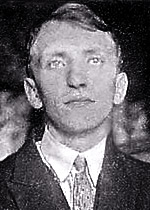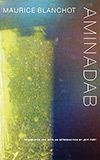Maurice Blanchot
| Full Name: | Maurice Blanchot |
| Born: | September 22, 1907 Quain, Devrouze, Saône-et-Loire, France |
| Died: | February 20, 2003 Le Mesnil-Saint-Denis, France |
| Occupation: | Writer, Philosopher, Literary Theorist |
| Nationality: | French |
| Links: |
|
Biography
Maurice Blanchot was a French writer, philosopher and literary theorist. His work, exploring a philosophy of death alongside poetic theories of meaning and sense, bore significant influence on post-structuralist philosophers such as Gilles Deleuze, Michel Foucault, Jacques Derrida and Jean-Luc Nancy.
Blanchot studied philosophy at the University of Strasbourg, where he became a close friend of the Lithuanian-born French Jewish phenomenologist Emmanuel Levinas. He then embarked on a career as a political journalist in Paris. From 1932 to 1940 he was editor of the mainstream conservative daily the Journal des débats. In 1930 he earned his DES, roughly equivalent to an M.A. at the University of Paris, with a thesis titled ("The Conception of Dogmatism in the Ancient Sceptics According to Sextus Empiricus").
Early in the 1930s he contributed to a series of radical nationalist magazines while also serving as editor of the fiercely anti-German daily Le rempart in 1933 and as editor of Paul Lévy's anti-Nazi polemical weekly Aux écoutes. In 1936 and 1937 he also contributed to the far right monthly Combat and to the nationalist-syndicalist daily L'Insurgé, which eventually ceased publication -- largely as a result of Blanchot's intervention -- because of the anti-semitism of some of its contributors. There is no dispute that Blanchot was nevertheless the author of a series of violently polemical articles attacking the government of the day and its confidence in the politics of the League of Nations, and warned persistently against the threat to peace in Europe posed by Nazi Germany.
In December 1940, he met Georges Bataille, who had written strong anti-fascist articles in the thirties, and who would remain a close friend until his death in 1962. Blanchot worked in Paris during the Nazi occupation. In order to support his family he continued to work as a book reviewer for the Journal des débats from 1941 to 1944, writing for instance about such figures as Sartre and Camus, Bataille and Michaux, Mallarmé and Duras for a putatively Pétainist Vichy readership. In these reviews he laid the foundations for later French critical thinking by examining the ambiguous rhetorical nature of language and the irreducibility of the written word to notions of truth or falsity. He refused the editorship of the collaborationist Nouvelle Revue Française for which, as part of an elaborate ploy, he had been suggested by Jean Paulhan. He was active in the Resistance and remained a bitter opponent of the fascist, anti-semitic novelist and journalist Robert Brasillach, who was the principal leader of the pro-Nazi collaborationist movement. In June 1944, Blanchot was almost executed by a Nazi firing squad (as recounted in his text The Instant of My Death).
Works in the WWEnd Database
Non Series Works |
|||||||||||||||||||
|
|
|
|
|
|||||||||||||||



















 Full Details
Full Details








